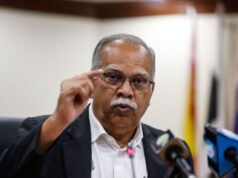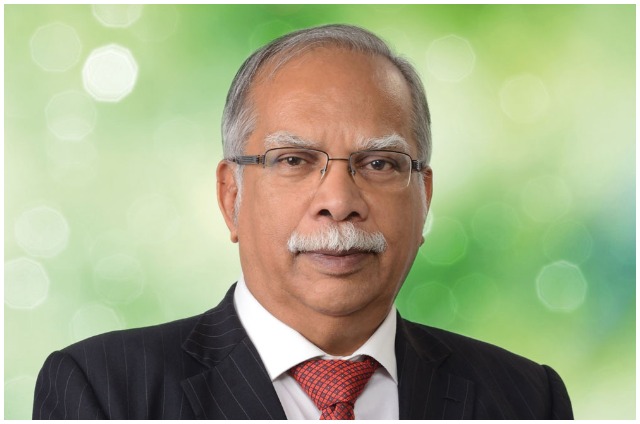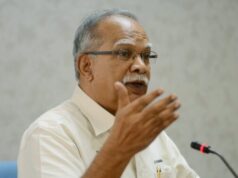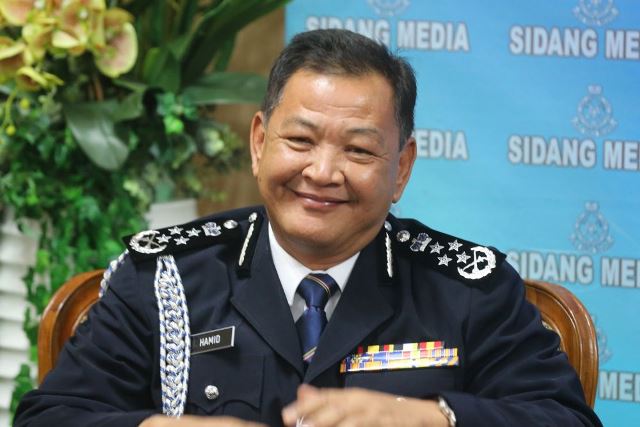

The former Director of Special Branch spoke on a wide range of issues, including the circumstances prior to his taking over as the nation’s No. 1 policeman from Tan Sri Mohamad Fuzi Harun.
Following are excerpts of the Q & A:
QUESTION: Can you, Datuk Seri, relate the circumstances at the time that you decided to go on optional retirement in 2016 and what happened after that? What were your feelings when it was officially announced that you have been appointed the IGP?
ANSWER: I made the right decision (to retire) because I was unable to accept what was happening then. I felt it would be wrong for me to carry on serving the police force. So, I decided to retire, in all sincerity. Then, I felt that it was no longer necessary for me to be in the public eye. I did not give any indication that I was interested in the affairs of the nation.
It was the best decision as far as I was concerned for the two years and eight months of my retirement. After the 14th General Election (GE14) on May 9 (2018), it did not cross my mind that one day I will be recalled to work. I was grateful that there was a change. I hoped that the change will bring about a transformation to the country. I did not harbour any expectations of being recalled to work.
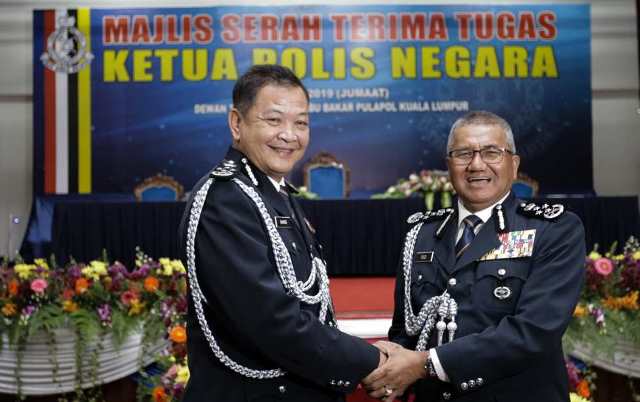

I rushed home to look for the proper attire to wear to meet the PM (Prime Minister Tun Dr Mahathir Mohamad). I drove all the way from my village in Rembau straight to the Perdana Leadership Foundation in Putrajaya. YAB Tun told me he wanted me to return to work and assist him, and offered me the post of Special Branch director. I informed Tun that there could be some confusion, some technical problem because I had already retired. Tun said that did not matter and that he will ask the Chief Secretary to the Government and the Public Service Department to settle the matter.
Tun related that he had returned as the PM 15 years after leaving the government and that he had many problems because he did not know who was a friend and who was a foe, which would jeopardise his plan to set up the dynamic new government that he wanted. I agreed and reported to work. I was given a document to sign, which turned out to be a one-year contract as the Special Branch director.
I did not expect this post of IGP.
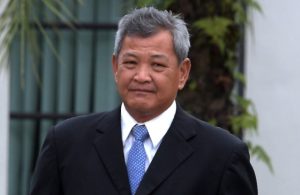

I submitted my proposals personally to YAB Tun and YB Home Minister. Then, talk of my being offered the post of IGP surfaced again, in November (2018). The gossips, here and there, turned out to be true. YB Home Minister himself told me that YAB PM wanted me to helm the Royal Malaysia Police. Again, I suggested that the matter be given some consideration.
Then, in April (this year), when Tun made the announcement, I was not caught by surprise because the matter had been under discussion for a long time. I am grateful to have been given this opportunity to helm the Royal Malaysia Police in accordance with my vision and mission.
QUESTION: Now that you are the IGP, what’s your plan, Datuk Seri, to bring about a transformation and enhance the integrity of the police force?
ANSWER: Firstly, for your information, I am the son of a policeman. I was born in a police barracks, raised in a police barracks. My late father was a constable or mata-mata (in Malay). Deep within me are the ins and outs of the life of a policeman.
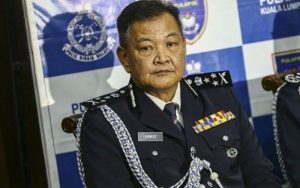

I would have been able to translate the feedback I received from the ground, the village folk, into the new vision and mission of the Royal Malaysia Police … that was my dream. Alhamdulillah (Praise be to God), right now I am here (as the IGP).
QUESTION: What are your plans for the Royal Malaysia Police?
ANSWER: My first mission is to restore public confidence in the Royal Malaysia Police, to improve the image of the force; a task most tough. But, I am convinced, Alhamdulillah (Praise be to God), given good health, I can work extra hours to focus on restoring the image of the force. There is much to do. It is not easy being the IGP.
I have said repeatedly that the majority of the 130,000 personnel in the force, comprising senior officers, junior officers, basically hold the vision to work to the best of their capability but there are weaknesses in terms of leadership which make them stray. However, I am convinced that the majority of the members of the force have a good foundation and are ready to accept any new policy, vision and mission which I will set.
InsyaAllah (God willing), I will get their support. So, that’s of utmost importance, to restore the image, integrity. That will settle the problem. The problem of image will be settled just like that, easily, if all members of the force retain or restore the integrity, trust, honesty and noble values. I believe this can be achieved.
QUESTION: What about the weaknesses in the force?
ANSWER: There’s ambiguity in the interpretation of police action in the effort to maintain law and order, what is right and what is wrong. As the IGP, I will explain to all that there is a clear line indicating what is right and what is wrong. There is no grey line. Every police action must be in accordance with the law. If the law says, it (something) is wrong, then wrong it is. There is no 50-50 (situation). I will strive towards that.
To give an example, the law is blind to skin colour, religion, descent, position. Hence, the law can be interpreted and enforced based on these principles, and the country will be peaceful.
If there is bias towards, for example, a political group, a racial group, a religious group, a territorial group, the nation will suffer. We have reached the point where the country has progressed to be a developed nation, our country is peaceful and progressive but we are still trapped in the old way of thinking. This is what I want to remove. Modern thinking is not contrary to any religious affiliation.
QUESTION: In a short time, Datuk Seri, you unshackled the deadlock over the IPCMC (Independent Police Complaints and Misconduct Commission) that had been long postponed. What’s the secret?
ANSWER: If I am not mistaken, when the IPCMC was first mentioned in 2015, there were calls for a form of investigation against the police force following many complaints and cases of misconduct here and there. I stated, personally, that there was a basis for the criticism but I also felt that the Royal Malaysia Police should be accorded its right as per our contract with the government. The government offers us such and such scheme of service, such and such welfare environment, such and such infrastructure. So, both of these will run simultaneously, meaning the police force is taken care of and accorded its rights as the main enforcement agency in the country and at the same time it is the responsibility of the force to give the people the best service as provided for by law. Both should run simultaneously.
All should realise, the public should also understand the situation pertaining to the force. The police personnel must realise that they are paid a salary, given authority, and they are obliged to provide the best service … if these can run simultaneously, then our country will be more progressive.
If law enforcement is weak, whereby the police can be bought, the police service can be bought through corruption, there will be injustice, there will be a disgruntled party, there will be someone subjected to injustice. That is bad. If we want to be a developed country, we must have a good system of policing, as good as that in the developed countries such as those in Europe, Japan, (South) Korea, Hong Kong.
QUESTION: What new measures are in the plan to eradicate corruption in the force?
ANSWER: In the past, there have been efforts to combat corruption in the force but I will give priority to this. The first step will be to make them (the personnel) aware that corruption is a huge sin.
We have the responsibility through the authority given to us, which is very sacred. We entice and it becomes a huge sin. I want to explain to the personnel that they should realise that any money gained in this wrong way will not be halal to be given to their families, to raise their families. I will instill in them the realisation that this is a most disgusting act.
This will be prohibited in all the departments of the force, including the Special Branch. Then, I will move to seal as much space as possible that has been blur all this while, between possible and not possible.
QUESTION: Prior to this, you have warned your men to cut all connections with the towkays of gambling and vice syndicates. To what extent have they adhered to this directive, so far?
ANSWER: I am serious when it comes to this, and I have received positive feedback from what I had mentioned earlier. The majority of our officers and personnel are honest. They are taking my directive very well.
We have to remember that in any society, especially in this country, gambling has been found to be the cause for other crimes as well, it (gambling) breeds crime. Just imagine youths, some in their teens, hooked on gambling, and when things get desperate they start to commit petty crimes, such as stealing – from their parents and anything from their homes, their neighbours’ homes, and they break into cars, steal motorcycles, all these for money to feed their their gambling addiction.
The police have a role to play to track down and prevent crime but we are allowing gambling activities to go out of control. I want this stopped.
If we do not curb this, what is the difference between them (gambling towkays) and us? I have initiated action and InsyaAllah (God willing) there is no turning back for me
I want each and every member of the force to come down hard on gambling premises, and I do not want to hear about how only the low-level offenders are caught and dealt with, while the towkays, despite already being identified, are roaming free.
QUESTION: Is there a need to add more manpower to the current 130,000-strong police force, or do you reckon the numbers are sufficient?
ANSWER: I am of the opinion that what we have now is enough. All the positions that the Public Service Department (PSD) has approved and have been filled are sufficient for now. I understand the situation the government is in now, but the security business is not cheap.
For instance, if residents associations opt for cheaper security services in their neighbourhoods, they will get to hire companies that offer a 30 per cent grade service, but should they spend more, they will get in return quality services with trained guards in place.
So, the government must spend more … this is happening all around the world, and it is the same with the Royal Malaysia Police, with requests for more allocations. As the IGP, InsyaAllah (God willing) I will ensure there is no room for mismanagement of allocations as has often been bandied about previously.
Much (allocation) was approved but it never got passed down. There was misappropriation at state levels and in the contingents where footwear and uniforms never got down to the officers and personnel and as a result they had to cough up their own money and later submit receipts for reimbursements.
This is not good at all and should never happen. Once supplies arrive, they should be distributed and passed down immediately. I will be streamlining the logistics in the force.
QUESTION: A lot has been said on welfare in the force. Your assessment?
ANSWER: In my visits, I see (police) barracks that are in very bad condition, dilapidated even. Four units that are supposed to house four families but they are run down and damaged, when in fact the repairs do not even cost much.
I take a look at these barracks and (directly) ask them (housed there). It is during these visits we get honest feedback from them without them being afraid of their OCPDs (district police chiefs) standing next to them.
They are frank with me about the problems they face due to their low salaries. Picture a constable with a spouse who does not work and two children. How much would it have cost just for the children’s milk formula? What about the daily meal expenses? When asked, they answer that there is hardly anything left of their RM2,000 plus salary, after deductions, to last the month. Tough, isn’t it?
When you live in the middle of the city, you have to even buy your own serai (lemongrass). If we are in the rural areas, we can plant them. Now, these are the difficulties (they have to face).
I have asked the government to reconsider the salary schemes for personnel in the lower ranks, to be on par with what their counterparts are enjoying in Japan, Hong Kong, Singapore, New Zealand, Australia and in other developed countries. Only by increasing their salaries, can we reduce the risk of them being lured by corruption or resorting to extortion for money.
The government, hopefully, will look at the Royal Malaysia Police service as something special as the burden of their having so much power is perilous for, when they (members of the force) are not rewarded justly, there is a lot of room (for them) to opt to go down the wrong way and commit crimes.
— BERNAMA




